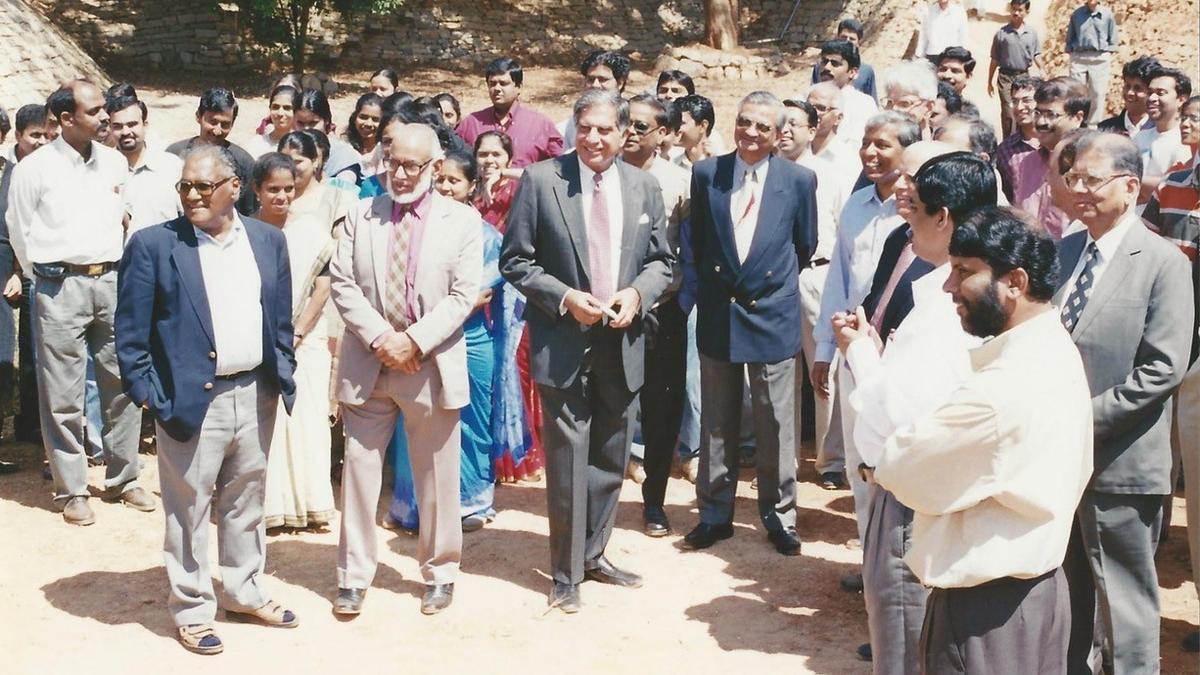
Ratan Naval Tata: A philanthropist who went for the long haul Premium
The Hindu
Ratan Tata's legacy as a philanthropist and industrial tycoon at the Tata Institute of Fundamental Research.
With the passing of Ratan Tata, we have lost—in addition to an industrial tycoon—a philanthropist who went for the long haul and was a calming influence amidst the turmoil and uncertainties of the everyday. At the Tata Institute of Fundamental Research (TIFR), we saw this in action over decades, beginning in the 1990s.
The TIFR was founded by Dr Homi Bhabha and is anchored in a tripartite agreement between the Dorabji Tata Trust, the Government of Maharashtra and the Government of India. The representatives of all three are on its Council of Management, with the chair usually from the Dorabji Tata Trust. Ratan Tata took on this position in the early 1990s, succeeding J. J. Bhabha (who briefly succeeded J. R. D. Tata). The Government of India almost entirely funds the TIFR through the Department of Atomic Energy. Therefore, it is unusual for the Chairmanship of the Council of Management to be assigned to the Tata Trust. This role involves tightrope walking of a kind where one false step can plunge the institution into an abyss of stasis at best, and deep crises at worst. Mr. Tata walked this path astutely for over 30 years, making sure and insisting on compliance with financial and administrative rules on one hand, yet demanding flexibility for science and encouraging ambition on the other. He was personally accessible to the TIFR Directors and Registrars—a requirement of his role—but he was also available on the phone or in-person to those in TIFR centres as they grew. In particular, Professors Govind Swarup (who established the Radio Astronomy programmes), Professor Obaid Siddiqi (who founded the National Centre for Biological Sciences; NCBS) and Professor B.M. Udgaonkar (who established the Homi Bhabha Center for Science Education) benefited greatly from these interactions. They went into meetings concerned, or even stressed, about a problem and came out reassured and optimistic. Stay calm, do not hurry, and do not waver from what you think is right, was his uniform advice.
The TIFR Council meeting held on November 15, 1995 was significant as it approved the creation of a separate faculty for NCBS, allowing it to function more autonomously while adhering to TIFR’s rules and bylaws. This meeting was part of the broader development efforts to strengthen NCBS as a research hub in the biological sciences under the TIFR umbrella.











